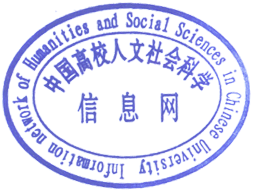“可欲之谓善”——孟子的道德动机论
作者:李朋
关 键 词 :孟子 道德动机 可欲之谓善学科分类:
摘要/Abstract
道德的行为要求人约束自己满足他人,至少从表象上看这违背了人类行为的一般规律。坚持道德为上者和强调自身利益者均将道德与利己视为本质上相异的东西。而孟子认为“可欲之谓善”,也就是说道德的行为同时也是最利己的行为。他从“善行”的直接目的“可欲”和以“善”为原则本身“可欲”这两个方面证明了道德的行为有其深植于人性的动力基础。
Moral behaviors, because of their seeming violation of the universal law of human behaviors, i.e., self-regard, are considered by both those who emphasize the importance of morality and those who stick to the significance of self-interest as basically incompatible with other wish-fulfilling behaviors. But according to Mencius, they are as desirable as, or even more desirable than, other wish-fulfilling behaviors, which he supported with two points-the desirability of the aim of moral behaviors and the desirability of sticking to moral principles-and thus found a solid ground for them in natural human motivations.

